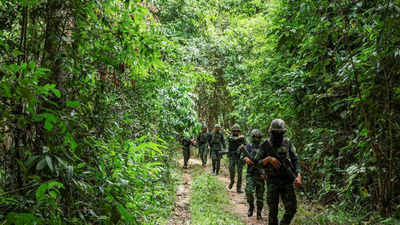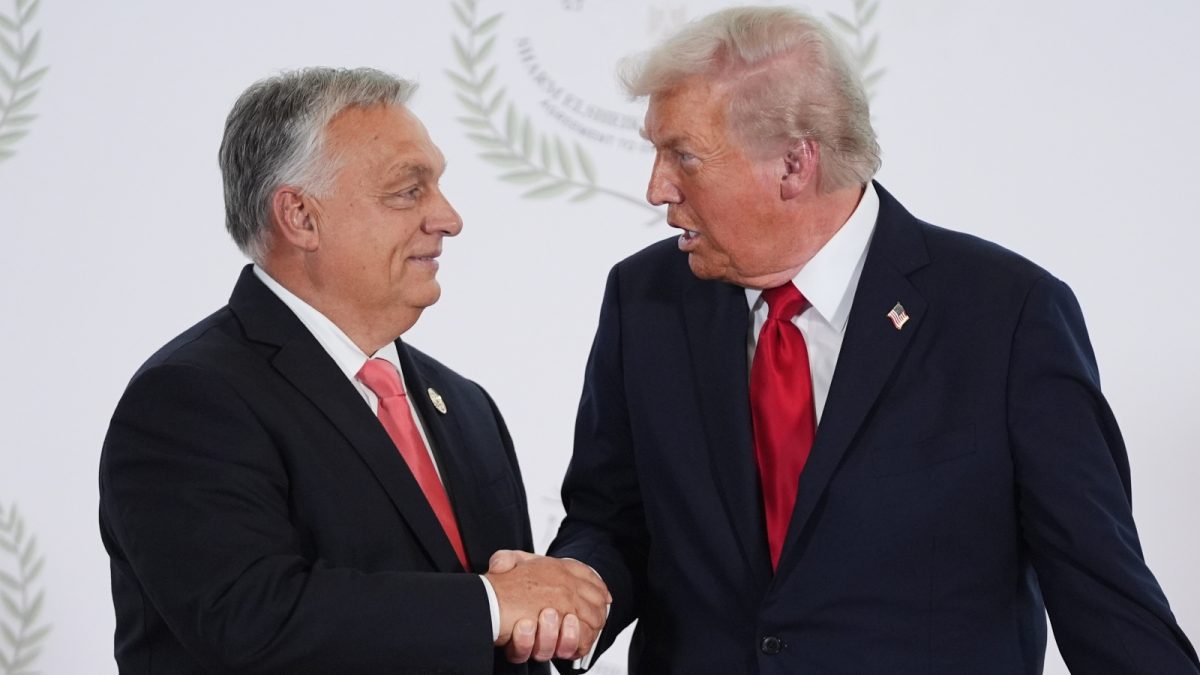ARTICLE AD BOX

Tensions between Thailand and Cambodia are not going away anytime soon after a fresh round of shooting broke out this week along their contested border. The flare-up between Thai and Cambodian troops on Wednesday occurred two days after a Thai soldier lost a foot to a land mine while patrolling the frontier.The Thai government has accused Cambodia of planting fresh landmines in the region — an accusation Phnom Penh denies.Bangkok also announced that it was suspending honoring the terms of a truce both sides agreed to at the end of July.That ceasefire deal — brokered by Malaysia, China and the United States — delivered a shaky peace following five days of cross-border combat, involving ground troops, artillery and jets.The fighting killed at least 48 people and temporarily displaced an estimated 300,000 civilians.
Why tensions remain high
The truce deal — called the Kuala Lumpur Peace Accords — was signed by both sides on the sidelines of the ASEAN summit in Malaysia in October, in the presence of US President Donald Trump.Trump had earlier put pressure on Thailand and Cambodia by threatening to delay trade talks with them over US tariffs unless they agreed to stop fighting.
The tenuous agreement aside, tensions remained high.Tita Sanglee, a Thailand expert at the ISEAS-Yusof Ishak Institute in Singapore, said it's because the deal did not lay out a path to resolve the underlying bitter territorial dispute."The peace deal was always on shaky ground, shaped largely by external interests and marked only by performative trust-building," she told DW. "Nothing substantive was done to address the underlying territorial disagreements," the expert continued.
Is the conflict spreading?
A Cambodian man was reportedly killed in Wednesday's shooting and three others injured.It took place near Prey Chan village in Cambodia's northwestern province of Banteay Meanchey.The same village was the site of a violent but not lethal confrontation in September between Thai security personnel and Cambodian villagers.Cambodian Prime Minister Hun Manet said the latest incident occurred after Thai forces engaged in "numerous provocative actions for many days with the objective of instigating confrontations."Bangkok, for its part, alleged that Cambodian soldiers fired into a district in Thailand's eastern province of Sa Kaeo, and that the Thai side "fired warning shots in response."Thitinan Pongsudhirak, professor of international relations at Chulalongkorn University in Bangkok, said the shooting shows "the conflict is spreading, expanding."He believes that the ceasefire deal "for all intents and purposes is finished and was weak to begin with."Ou Virak, founder and president of Future Forum, a Phnom Penh based think tank, said the strains and underlying grievances are "certainly not going to die down."He stressed that Thailand's expected general election early next year and rising nationalistic fervor in Cambodia will make it difficult for both sides to dial down the tensions and turn the focus away from the border spat."The best outcome would likely be a continuation of the status quo for the next three or four months," Virak told DW.
What is the border dispute about?
The border dispute between Thailand and Cambodia is decades old.Both countries share a 800-kilometer (500-mile) border which stretches across regions that are sparsely inhabited.Their competing territorial claims stem largely from a 1907 map drawn when Cambodia was under French colonial rule, which Thailand has argued is inaccurate.There are also several temples near the Thai-Cambodian border to which both countries lay claim — most notably, the historic Preah Vihear temple, a 1,000-year-old Hindu site built by the Khmer Empire.Both Cambodia and Thailand claimed ownership and the case went to court.The International Court of Justice in 1962 ruled that the temple was on Cambodian territory, which still rankles many Thais.In 2008, as UNESCO was moving to declare it a World Heritage Site, the old row over the temple reignited.In 2011, Thai and Cambodian soldiers exchanged fire over the dispute.But the border had since remained largely peaceful until the clashes this July.
Need for clear demarcation of the border
For lasting peace, Virak said Thailand and Cambodia need to re-demarcate and accept the border."There's hardly any agreed formula for a lasting peace. There needs to be independent, either regional or international, mechanism that needs to be accepted for that lasting peace to happen," he added.Thitinan noted that there's a "lot of animosity" between the neighbors."What's needed is that the political leadership should tell the people in both countries to stand down and that Thailand and Cambodia should not go in this direction."

 1 hour ago
4
1 hour ago
4









 English (US) ·
English (US) ·